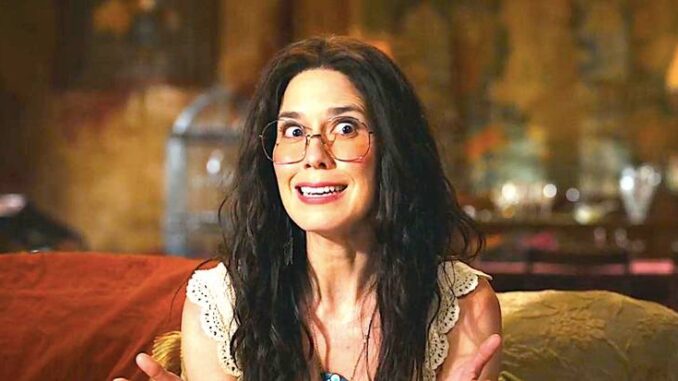
Flower, the Unsung Hero: Why She Deserves More Spotlight in Ghosts After Four Seasons
The inhabitants of Woodstone Manor in CBS's "Ghosts" are a quirky, charming, and utterly hilarious ensemble, each trapped in their respective eras and wrestling with the everyday absurdities of modern life. While the show expertly juggles a large cast, giving each ghost their moment to shine, one resident feels consistently underserved: Flower, the 1960s hippie spirit played with delightful ditziness by Sheila Carrasco. After four seasons (md02), it's time Flower blossoms into the fully realized character she deserves.
Flower, more than any other ghost, represents a specific, almost caricatured, era. With her tie-dye, perpetual haze, and a penchant for pronouncements that border on the nonsensical, she's the quintessential embodiment of the peace and love movement. Initially, this was amusing. Her cluelessness provided comedic foil to the more grounded characters, particularly Thor, her Viking paramour. However, reducing Flower solely to a stereotype has stunted her growth. We've seen glimpses of depth – flashes of surprising insight, moments of genuine empathy – but these are fleeting, overshadowed by the recurring gag of her being perpetually stoned and out of touch.
The other ghosts have benefited from significant character development. Hetty, the prim and proper Victorian, has confronted her prejudiced beliefs and embraced a more progressive outlook. Isaac, the Revolutionary War officer, has grappled with his repressed sexuality and burgeoning feelings for Nigel. Even Trevor, the pantsless Wall Street bro, has shown glimpses of remorse and a surprising capacity for self-reflection. Flower, however, remains largely static, a caricature reinforced with each predictable joke about her hazy recollection of the past.
The potential for Flower's growth lies in exploring the nuances of her era and the complexities beneath her seemingly simple exterior. The 1960s were not just about peace, love, and tie-dye; they were a time of profound social and political upheaval. Flower, as a product of that generation, likely held strong beliefs about social justice, environmentalism, and equality. Exploring these beliefs, even in a comedic context, could add layers to her character and provide her with a more compelling voice within the ensemble.
Furthermore, her relationship with Thor, while initially endearing, has also contributed to her stagnation. Their dynamic often revolves around Thor's exasperation with Flower's cluelessness, reinforcing the idea that she's inherently naive and incapable of grasping complex situations. A deeper exploration of their connection, perhaps showcasing the shared vulnerability that binds them, could offer a more nuanced perspective on both characters and allow Flower to contribute more meaningfully to the relationship. Imagine an episode where Flower, despite her perceived ditziness, offers Thor unexpected wisdom or support, proving that beneath the tie-dye and incense lies a genuine connection.
The writers have demonstrated their ability to handle sensitive topics with humor and heart. They could easily explore Flower's past, revealing the events that shaped her beliefs and ultimately led to her death. Perhaps she was involved in a significant protest, or perhaps she witnessed something that shattered her idealistic worldview. Exploring her backstory could not only add depth to her character but also provide a valuable perspective on the historical events she lived through.
Finally, giving Flower more agency within the group dynamic would significantly enhance her contribution to the show. Currently, she often serves as a background character, delivering occasional comedic lines. Empowering her to take a more active role in solving the mysteries of Woodstone Manor, or even just contributing meaningfully to the ghosts' ongoing conflicts, would give her a sense of purpose and demonstrate that she's more than just a stereotypical hippie.
In conclusion, "Ghosts" has proven itself adept at crafting compelling characters and weaving intricate storylines. Flower, despite her initial comedic appeal, has been relegated to a largely static role, failing to reach her full potential. By delving deeper into her backstory, exploring her beliefs, and giving her more agency within the group, the writers can unlock the untapped potential of this character and allow Flower to finally blossom into the complex, multifaceted ghost she deserves to be. It's time for Flower to move beyond the stereotype and show us the vibrant, insightful, and ultimately human spirit that lies beneath the tie-dye and the haze. Only then will she truly bloom within the haunted halls of Woodstone Manor.
